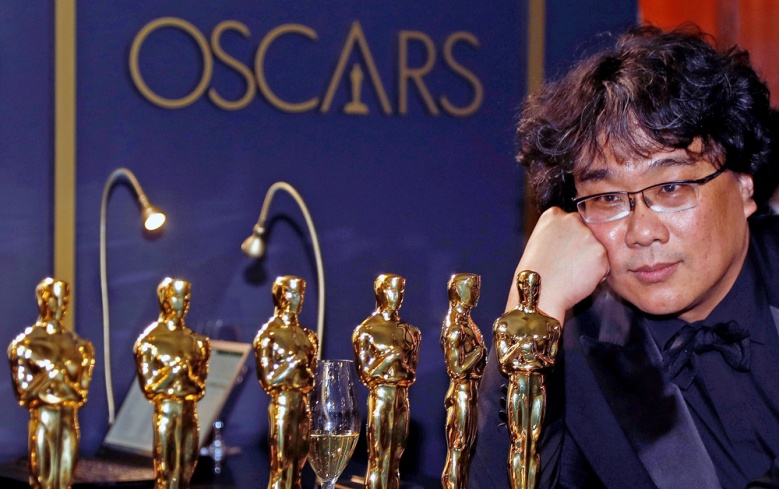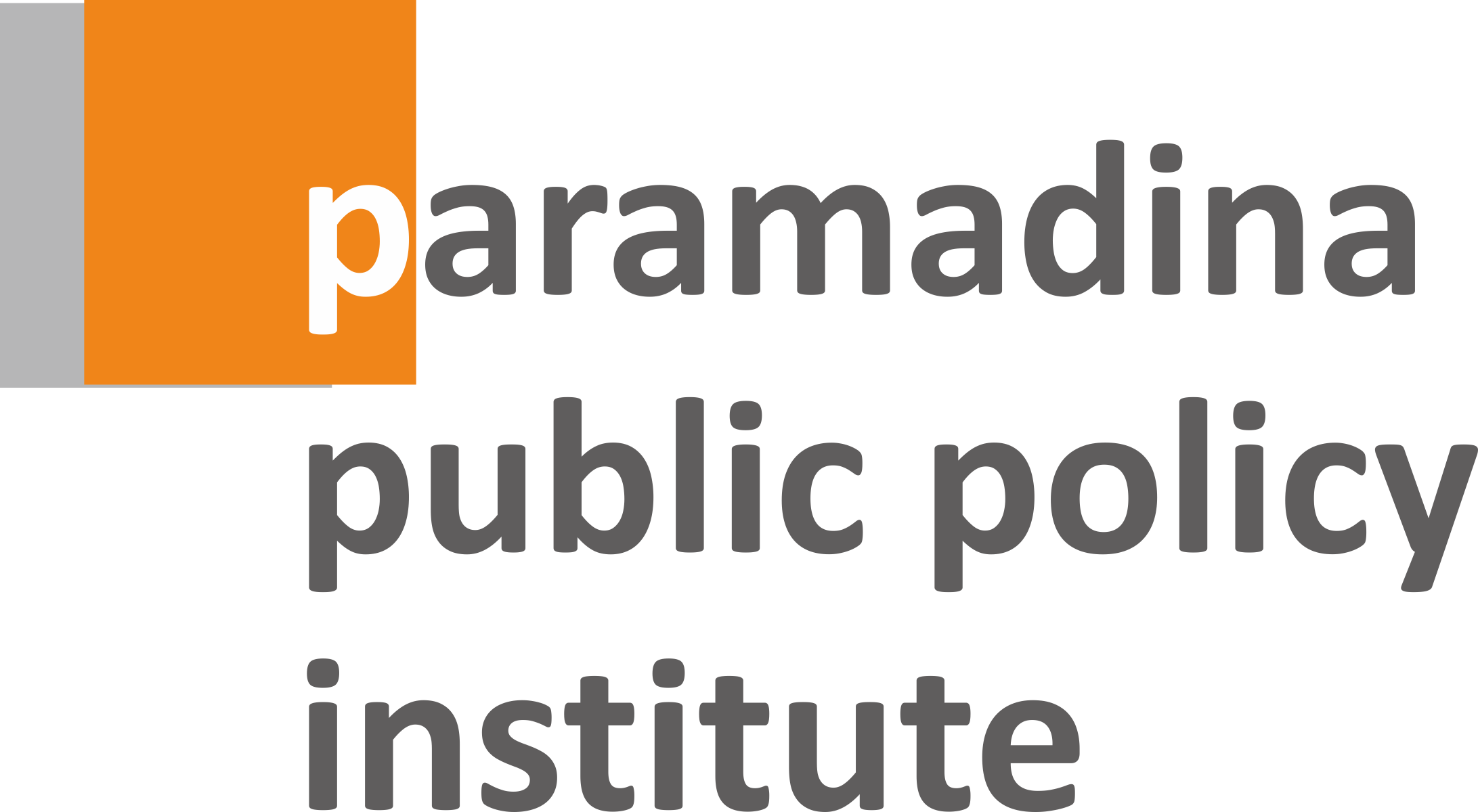
February 15, 2020
Bong Joon-ho was down to earth when he said: “I am honored to win this award. Although the film is in Korean, I think the story and nonverbal expression is the universal language.”
Winning best original screenplay at the 2020 Writers Guild Awards, BAFTA awards and Oscars looked easy for him and co-writer Han Jin-won. It took hard work and, for sure, creativity.
Bong’s movie Parasite won the Oscar for best film— the first Asian movie to make the mark, too. It was nominated for the award in the prestigious competition along with 1917, Joker, Once Upon a Time in Hollywood, The Irishman, Little Women, Jojo Rabbit, Ford v Ferrari and Marriage Story, which were the works of titan directors.
Indeed, Bong, the grandson of novelist Park Taewon, surprised the world with his extraordinary work. He created the film in the Korean language, yet global audiences could connect with it. The film explores Shakespearean class discrimination between the wealthy Park and destitute Kim families. .
Old wine in new bottle? Nope. It is the magic of creativity, which is one of the 4 Cs of 21st century skills; the other three are critical thinking, collaboration and communication.
Good education today must be capable of producing good people who are creative and worthy to be alive in this ever-changing and ever-disrupting age. If we think that Bong is the product of a good education system, then we must conclude that South Koreans are lucky enough to have it. Nevertheless, it is the outcome that matters the most for any education system in the world.
In the last 2018 PISA test, South Korea did not take the top spot, which went to Singapore for reading, science and math. Indeed, the Parasite phenomenon is much more significant this year for emphasizing the outcome of good education.
We have been debating the role of education in developing good citizenship for centuries. We moved from teacher-centered to student-centered learning. We use more technology in schools. We are more humane by paying attention to the children’s well-being. We abandoned standardized tests, the ranking system, a uniformed way of thinking and corporal punishment.
Pasi Sahlberg and William Doyle suggested more play and recess for children. The Lego Foundation went even further by proposing that children start school at 8 while letting children just play before then. Crazy? No sir.
Human minds expand at an amazing rate until 5 years old. Some studies even found that the brain expands the nerves in the womb during pregnancy. Within that period of development, we need to let the children’s minds wander and — at some point — think outside the box. To be creative and critical.
Indonesia is the perfect example of the old-school way of educating children.
We rush them to school and force them to think “like others” and adjust with the crowd — henceforth, they are afraid to think differently. We destroy our children’s creativity even earlier on when they are in kindergarten. How? We — the adults surrounding the children — tend to have the children believe that there is always one right answer for every question. We give them questions, then show them the correct answers.
In fact, the brain of a child under 5 grows synapses almost every moment, they should learn there are many right answers. We limit and, worse, reduce their creative minds.
Educationist Derek Haylock insisted there are at least two major ways in which the term “creativity” is used in mathematics: 1) thinking that it is divergent and overcomes fixation and 2) the thinking behind a product perceived as outstanding many people. Furthermore, creativity is associated with long periods of work and reflection rather than rapid and unique insights.
The 2018 PISA test shows South Korea and Indonesia have a similar percentage of academically resilient, disadvantaged students and reading skill within the lower socioeconomic bracket. This at least explains Indonesia’s pro-poor education policy is needed, giving a significant chance for poor children and families. We still need the Indonesia Smart Card (KIP) and Bidik Misi, scholarships for elementary and middle and higher education students. But we need such extra schemes to ensure the children from poor families stay in school and go to college.
Now, we must tackle the imminent problem: teacher’s competency. The low-quality learning process in schools is due to teachers’ old-school ways of teaching. They are ill-equipped to teach using 21st century approaches. Worse, their competencies are never assessed properly.
The latest nationwide teacher competency test (UKG) came in 2015. Luckily, Jakarta municpality took the initiative to conduct the UKG in 2019 for around 110,000 teachers — from public and private schools to general ones and the Islamic madrasah. The Jakarta administration will use the results for performance-based remuneration and the province-wide 2020 teacher trainings.
Education expert Stefan Johansson once said that if there were relatively few world-famous East Asian writers, musicians and other artists, perhaps that had mostly to do with the West’s dominance in exporting its own values and tastes.
It would be hard to argue that a country like Japan (home to manga stories, anime movies, spectacular cuisine, etc.) lags behind any other part of the world in terms of creativity. And when it comes to economic matters, the gross domestic product for East Asian countries has shown marked advances in recent years, and researchers are suggesting that high scores on PISA and other international assessments can be connected to their productivity (such as Hanushek and Woessmann, 2016).
Parasite was not created overnight. Bong must have worked hard to refine his skills by learning from his teachers in schools and beyond. Indonesia and other Asian countries that have similarities with Korea must learn something.
A seed will grow well on fertile soil. Likewise, a human mind will flourish with good nurturing. Education as a nurturing system should be planned and developed carefully for the intended results and outcomes.
The problem with many countries is that the education system is just an ornament in the Constitution and, henceforth, a privileged budget is allocated year after year. We then reserve the unintended consequences afterward.
Every education policy must reach the hearts and minds of all people involved because it makes sense with good arguments — not just popular jargon. We need good research, meticulous study and comprehensive considerations, because our future is at stake. (*)
Totok is a public policy and education researcher at Paramadina University and Jakarta State University. He is a member of the advisory board of Paramadina Public Policy Institute
This article was first published on the Jakarta Post, 15 February 2020
